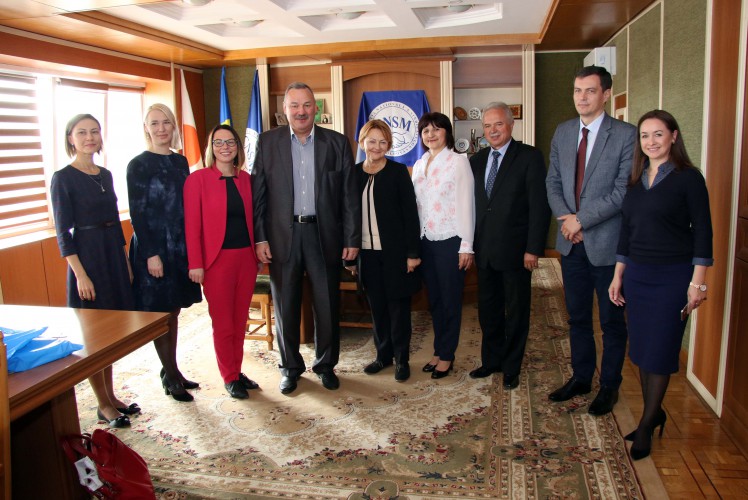CNSM interested in Lithuanian experience in amending labour law
Today, October 12, a meeting of the CNSM leadership with experts in the field of labour law from Lithuania took place.
Oleg Budza, president of CNSM, informed the guests that in our country is taking place a change in labour law in the context of the implementation of the EU-Moldova Association Agreement and, as expected, there are some issues related to amending legislation not only in the sense of labour relations, as well as the Labour Code of the Republic of Moldova, the Law on wages and other normative acts. However, he stressed, the procedure of drafting legislative acts is not at all simple and cannot be done at an alert pace. That is why it is important for the trade unions in Moldova that the social dialogue partners – the Government, the employers – realize that this process must take place in an atmosphere of agreement and harmony.
The president of the CNSM stressed that Moldovan trade unions count on the experience of implementing the reform of labour legislation in the Baltic country, which involved scientists and experts, and the most important detail is that the role of coordinator of the labour law amendment process assumed the Lithuanian Labour Ministry. Oleg Budza expressed his wish that the process of amending the labour legislation in our country should take place in the spirit of the reform of the labour legislation in Lithuania, under the conditions of the tripartite collective consultations and negotiations, which will have positive results in the dialogue with the social partners. However, in the view of CNSM president, labour law must be fair, complete, so that the employee understands that the law protects his rights and interests. The EU-Moldova Association Agreement does not support the adoption of rules that could worsen the situation of the worker.
Egle Radisauskiene, Deputy Minister of Labour and Social Security of the Republic of Lithuania, reported that the elaboration of the draft Labour Code in the Baltic country was coordinated by the Ministry of Labour and Social Security, but the social partners were involved in all stages of conception, with its proposals. Evidence is that almost 90 percent of the articles of the Labour Code have been agreed upon in tripartite consultations and negotiations.
Speaking about the experience of amending the labour legislation in the Baltic country, the representative of the Ministry of Labour and Social Security of the Republic of Lithuania emphasized that there is no need to invent something new, but it is only necessary to adjust the existing rules to the created realities. “It is important to ensure balance and compromise in the dialogue between the social partners”, – concluded Egle Radisauskiene.
Department of Mass Media and International Relations of CNSM



